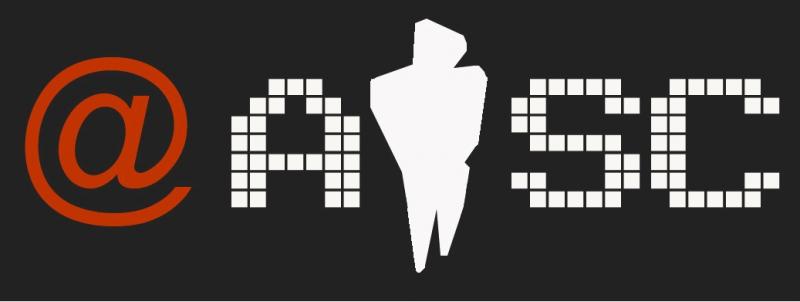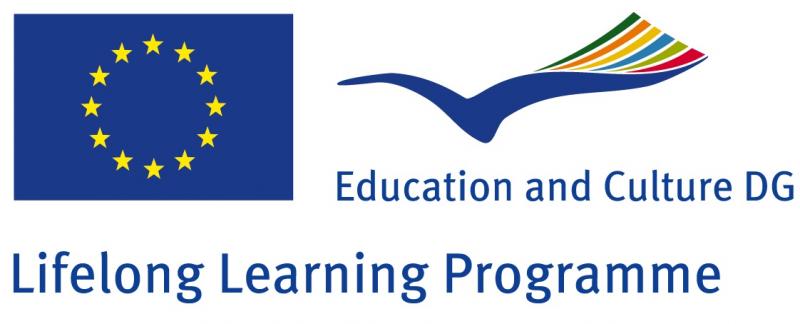Block-Magic project: How smart technologies support
some traditional psycho-pedagogycal practices
- Date: June 18, 2013
- Location: Dip. Economia e Management, Trento
- Room: Information coming soon
Block Magic is a two-year EU project which is developing an innovative teaching/learning environment based on (a) Embodiment Cognition theoretical perspective; (b) recovering well known and
traditional psycho-pedagogical practices; (c) using Smart Technologies (i.e. RFID/NFC readers and sensors) that permit manipulation of physical objects; (d) implementing an Authoring System and an Adaptive Tutoring
Systems in order to support learners and teachers (or parents) actions.
Block Magic is based on the convergence of Embodiment Cognition Theory and the Smart Objects technology.
This interaction could produce innovative learning/teaching environments to enhance our neuro-cognitive development. Moreover, this alliance could recover traditional and well known psycho-pedagogical practices that are not widely and massively applied because of their expensiveness. It is the case of educational materials like Logic Blocks or Teaching Tiles. These are manipulative learning environments designed to teach a wide range of subjects (mathematics, geometry, languages, geography, etc.) and abilities (or soft skills) (problem solving, creative thinking, cooperative behaviour, etc.) for children between 3 and 10 years old. This type of material could be used individually or in small groups of students (3-4 children maximum) and requires a constant supervision by an adult (teacher, parent, educator, etc.). This is a strong constrain for their massive utilization. Block Magic proposes an approach to overcome this constrain by enhancing the traditional learning materials with smart technologies. It allows personalised learning, instant formative feedback and constant student support, while providing, at the same time, flexibility to teachers in the classroom management and follow-up evaluation.
This interaction could produce innovative learning/teaching environments to enhance our neuro-cognitive development. Moreover, this alliance could recover traditional and well known psycho-pedagogical practices that are not widely and massively applied because of their expensiveness. It is the case of educational materials like Logic Blocks or Teaching Tiles. These are manipulative learning environments designed to teach a wide range of subjects (mathematics, geometry, languages, geography, etc.) and abilities (or soft skills) (problem solving, creative thinking, cooperative behaviour, etc.) for children between 3 and 10 years old. This type of material could be used individually or in small groups of students (3-4 children maximum) and requires a constant supervision by an adult (teacher, parent, educator, etc.). This is a strong constrain for their massive utilization. Block Magic proposes an approach to overcome this constrain by enhancing the traditional learning materials with smart technologies. It allows personalised learning, instant formative feedback and constant student support, while providing, at the same time, flexibility to teachers in the classroom management and follow-up evaluation.
During the first year the consortium has developed a hardware/software system (the Block Magic Platform) tested in kindergarten and primary schools in 4 countries: Germany, Greece, Italy and Spain. During the workshop the Block Magic consortium will show
the prototype, focusing on the experience and the results achieved during the project.
Speakers and speakers' talks:
- Welcome and opening remarks
- System overview – The BLOCK MAGIC KIT
Technical description of hardware and software and showing of device functionalities
- The methodological approach of the Block Magic Project
- The use of smart technologies in the pedagogical field: Block Magic in Spain
- The use of smart technologies in the pedagogical field: Block Magic in Germany
- The use of smart technologies in the pedagogical field: Block Magic in Greece
- The use of smart technologies as an support for the learning of children with special needs
Stefania Campestrini
- Cognitive variables in the Digital Age
- Question time, summary and closure of the workshop
Speakers' Bio:
- Orazio Miglino is a member of the Laboratory for Adaptive Robotics and Artificial Life (lara.istc.cnr.it) at ISTC-CNR. He is simultaneously a full professor at University of Naples where he is president of the 5 year specialist degree course in psychology and leads the National and Artificial Cognition Laboratory. Prof. Miglino’s main research interest is in the biological and cognitive mechanisms that organisms (humans, animals, plants) use to construct their knowledge of the world and in the applications of this knowledge to the world of education. Prof. Miglino has coordinated numerous projects in the LLP program both for ISTC-CNR (Learn2Lead, T3, SINAPSI, SISINE) and for University of Naples (EUTOPIA-MT, DREAD-ED)
- Raffaele Di Fuccio is a medical engineering working as fellow researcher at the Institute of Cognitive Sciences and Technologies (ISTC) of Italian National Research Council (CNR). His research interests are in data analysis and in development of new adaptive classification bio-inspired models. He collaborated in many projects in the FP7 program for Xiwrite srl (CONVERGENCE, OPTIMI, N€UROMED) regarding mainly management and coordination issues
- Andrea Di Ferdinando is a researcher at the Institute of Cognitive Sciences and Technologies (ISTC) of Italian National Research Council (CNR). His research activity concentrates main on Artificial Life and Neural Networks techniques and methodologies, on computational models of neuropsychological syndromes, on Artificial Intelligence systems applied to videogames and learning processes. He is author of international scientific publications and participated to many European research projects, in which he collaborated to the creation of several technological platforms for Soft Skill training.
- Mario Barajas Frutos is Professor at the Faculty of Pedagogy of the University of Barcelona. He leads Future Learning (http://www.ub.edu/euelearning) an initiative at the University of Barcelona aimed at developing research in the educational, cultural and socio-economic aspects of the use of digital technologies in learning; the research promotes synergies with different disciplines in rethinking knowledge conceptions and knowledge production in the multidimensional spaces that define the European culture of the XXI century. With a background in Engineering, Philosophy and Education, Dr. Barajas was former secondary education teacher in the area of math and experimental sciences. During the last twenty years he has coordinated and participated in many EU-funded projects (SOCRATES-MINERVA, LLP, FP6, FP7) in the area of learning technologies, evaluation of learning innovations, and lifelong learning policies. He has published several books and scientific articles, and belongs to different European research networks.
- Anna Trifonova is a researcher at the University of Barcelona (UB) / Fundació Bosch i Gimpera. She has a PhD in Information and Communication Technologies (ICT) from the University of Trento (Italy) focusing on wireless and mobile technologies in education with application on language learning. She is experienced in ICT from both technical and methodological side. Her interests include technology-facilitated learning, creativity and innovation facilitated by ICT, networking tools for support of virtual communities, etc. She has participated in several EU projects and national-level projects in Italy and Norway. Within Future Learning, she has been involved in various EU funded projects, such as EFELSE (LLP-KA1), ProActive (LLP-KA3), SCeTGo (LLP-KA3) and Pathway (FP7) projects. Currently, she is actively involved in Block Magic
- Marlen Belafi, M.A. works as research assistant at the chair „Emerging Communications & Media“ of Technische Universität Dresden. She has studied Communications Studies at the Technische Universität Dresden and is research assistant at the institute of communications science since 2011. Her interests include emerging communications and media, media literacy and media pedagogy. She is currently working on her Ph.D thesis which is concerned with the relationship between social media literacy and the handling of private information on social networking sites. In the Block Magic project, she is responsible for the formative evaluation and the quality plan
- Anna Zoakou works as researcher in the Research and Development of Ellinogermaniki Agogi school. Anna is a social scientist with theoretical background and practical experience in the management of programs related to the creative exploitation of digital media in education, capacity building in disadvantaged social groups, teacher training, anti-bullying policies, career education, and dropout studies. She holds a BA in Greek Philology and Linguistics, an MA in Political Science and Sociology and a PhD in Sociology of Education from University of Athens. Her PhD and relevant research has a particular focus on the educational aspects of the migration policies and their impact on integration effectiveness. She has a strong experience in coordinating large, inhomogeneous, multicultural teams across institutions and countries and in the organization of workshops and conferences.
- Dimitra Dimitrakopoulou holds a BA in Greek Philology and an MA in ICT in Education. She is a PhD candidate in the National and Kapodistrian University of Athens and her PhD thesis is mainly concerned with teaching Ancient Greek using Text Corpora. She works as an ICT instructor in Ellinogermaniki Agogi Primary school and as an external fellow in the Research and Development department of Ellinogermaniki Agogi. She is responsible for the Block Magic project and especially for the Summative Evaluation.
- Carlo Ricci is Doctor of Psychology and psychotherapist, he specialized in Applied Behavior Analysis and Cognitive-Behavioral Psychotherapy. He founded in 2000 and directed until 2009, the Center for Research and Documentation on Disability of the Marche Region. His main interests relate to professional and scientific areas of application in the field of disability, special educational needs and problems of development. He Editor in Chief of the Journal Severe Disabilities – Cognitive Behavioral Interventions and Assistive Technology. He is a member of Editorial Board of several journals and he was a member from 1997 to 2000 and from 2006 to 2009 of the Scientific Committee of the National Disability of the Ministry of Education. In 1999/2000 was National Working Partner to the European Agency for Development in Special Needs Education representing our country. He has been being consultant of the Lega del Filo d’Oro di Osimo since 1982 and he has been being member of the Scientific Committee since 1997. He teaches at the Università Pontificia Salesiana di Roma and University “La Sapienza” of Rome. He published 15 books, 21 book chapters, 5 prefaces, 96 articles in national and international, 3 software and he has been invited speaker at over 140 conferences at national and international. He was a founding member of the Italian Society of Psychology of Health and Member of Executive Committee from 2004 to 2008 as General Secretary and as Treasurer from 2010 to today.






